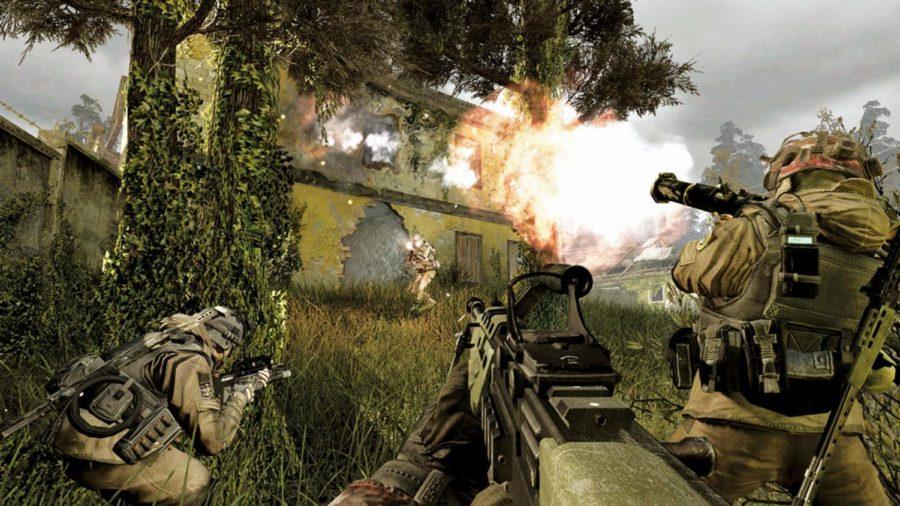Vriezen: Video games’ status as protected speech affirmed
June 30, 2011
The Supreme Court of the United States has a history of making some controversial decisions when it comes to censorship and free speech. As of Monday, June 27, 2011, the Supreme Court made a ruling about speech protection for a hotly debated medium: video games.
The Supreme Court ruled a California law prohibiting the sale of violent video games to minors unconstitutional. Associate Justice Antonin Scalia wrote in the majority opinion that “like the protected books, plays and movies that preceded them, video games communicate ideas and even social messages through many familiar literary devices … and through features distinctive to the medium. That suffices to confer First Amendment protection.”
The particular law that was struck down would have penalized with a fine any store that sold violent video games to minors. Legislators who passed this law sought to protect the interests and well-being of children.
Despite numerous rulings in the past that protect video games as a form of speech, attempts to restrict that speech continue. Judging from the bit of cursory research I conducted, there are very few sound reasons to prohibit selling violent games to the underaged in the first place.
To the best of my knowledge, the Entertainment Software Rating Board’s (ESRB) game rating system is not legally binding in any way. Like movie ratings, the game ratings are based on industry-imposed standards. They inform consumers about game content. Store and chain owners who refuse to sell certain games or movies to minors do so voluntarily. Most major corporations have policies already in place to keep games rated Mature or Adults Only out of the hands of minors.
Laws that seek to penalize businesses for failing to perfectly enact measures they are already implementing seems excessive to me — particularly when other aspects of the debate are taken into account.
The issue under debate is whether the government can make laws restricting free speech in order to protect minors. As in the cases of movies and reading material, decisions regarding a child’s intake of media should be left to parents, not legislators.
We place a good deal of trust in parents’ ability to bring up their own children. We trust parents to decide what media is appropriate for their children, whether that media is on a screen or on a page.
This ruling simply reinforces what many parents were already doing for their children: ensuring that the media that entered their house was suitable and in accordance with parental standards.
Common arguments aside, the issue this boils down to free speech. What is protected by the First Amendment and what is not? As Justice Scalia wrote in the majority opinion, “no doubt a state possesses legitimate power to protect children from harm, but that does not include a free-floating power to restrict the ideas to which children may be exposed.”
In the United States, only a few forms of expression are censored outright. These include those that are legitimately harmful or are meant to incite violence.
Thus far, there is no reason to suppose that violent video games cause harm to children. Many laws have been introduced to protect children from these games, on the assumption that violent video games increase violent or aggressive tendencies in children.
In a previous decision on a similar Minnesota law, Judge James Rosenbaum wrote that “…there is no showing whatsoever that video games, in the absence of other violent media, cause even the slightest injury to children.” In many other court cases, the evidence presented to show the harm caused to children has been deemed insufficient.
In the evolution of various forms of speech, there have always been those that see some aspects of them as harmful. Yet time and time again, new forms of expression have been protected under the First Amendment.
Maybe one day, substantial research into the effects of video games will support the claim that they are harmful. Until then, states should stop making laws that are destined to be struck down in the courts.







